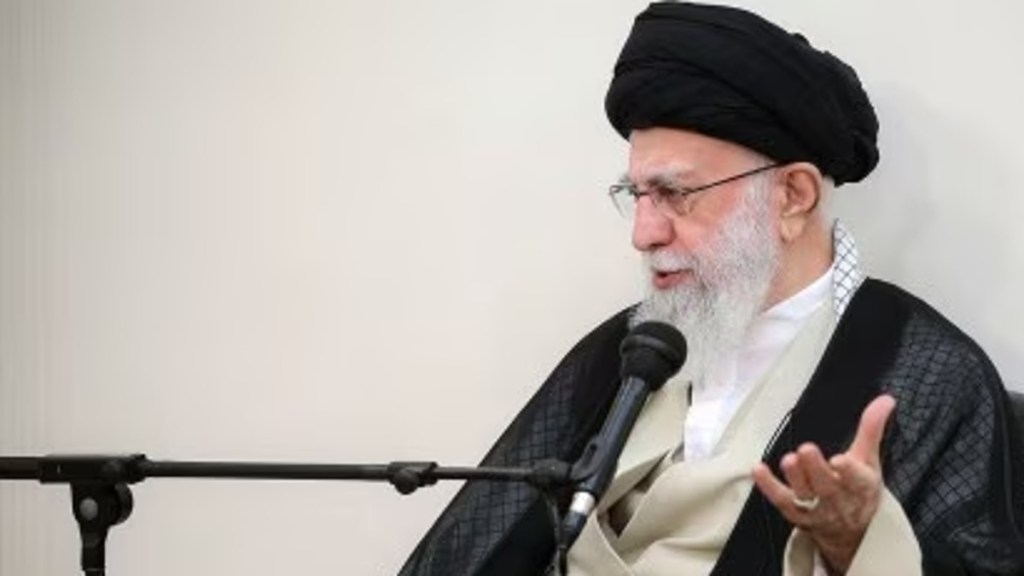Ayatollah Ali Khamenei is one of the most influential political and religious leaders in Iran. He has been serving as the Supreme Leader of Iran since 1989, succeeding Ayatollah Ruhollah Khomeini. Before becoming the Supreme Leader, Khamenei held the position of President of Iran from 1981 to 1989. His role as Supreme Leader makes him the highest authority in the country, with ultimate control over Iran’s military, foreign policy, and internal security.
Early Life and Rise to Power
Khamenei was born in Mashhad, Iran, on April 19, 1939, and received religious training there and in Najaf, Iraq. He became involved in underground activities against the regime of Shah Mohammad Reza Pahlavi, which led to multiple arrests, torture, and a period of exile. Following the 1979 Iranian Revolution, Khamenei returned to Tehran and quickly rose through the ranks of the revolutionary leadership.
In June 1981, Khamenei survived an assassination attempt during a speech at a Tehran mosque. The attack believed to be carried out by the anti-clerical Forqan group, left his right arm permanently paralysed. Despite this, Khamenei’s prominence continued to grow, and after the deaths of President Mohammad Ali Rajai and Prime Minister Mohammad Javad Bahonar in 1981, he ran for and won the presidency with 95% of the vote. He served two terms until 1989.
Khamenei’s influence was further solidified during the Iran-Iraq War (1980–1988), where he played a key role in coordinating efforts with the Revolutionary Guards.
Appointment as Supreme Leader
In June 1989, following the death of Ayatollah Khomeini, Khamenei was appointed Supreme Leader by the Assembly of Experts, despite not being a Marja at the time (a requirement for the position). As the Supreme Leader, Khamenei holds vast power, overseeing the appointment and removal of key military and government officials, including those in the Revolutionary Guards.
Controversy with India
Recently, Ayatollah Khamenei sparked controversy in India over remarks he made about the treatment of Indian Muslims. In a post on X (formerly Twitter) during the birth anniversary of Prophet Mohammed, Khamenei grouped Indian Muslims with those in Gaza, Myanmar, and other regions, referring to their “suffering” and urging the Islamic world to unite against the oppression of Muslims globally.
Khamenei’s post read: “We cannot consider ourselves to be Muslims if we are oblivious to the suffering that a Muslim is enduring in #Myanmar, #Gaza, #India, or any other place.” He further emphasised the importance of Islamic unity, stating that the enemies of Islam seek to divide Muslims and weaken the Islamic identity.
India reacted strongly to Khamenei’s remarks, calling them “misinformed and unacceptable.” In a statement, India’s Ministry of External Affairs advised countries like Iran to focus on their own records regarding minorities before making such comments about others. The statement also emphasized India’s commitment to safeguarding the rights of all its citizens, including minorities, and condemned Khamenei’s comments as interference in India’s internal matters.
India-Iran Relations
This controversy comes at a delicate time, as India maintains important diplomatic and economic relations with both Iran and Israel. While Iran is a significant supplier of crude oil to India and both nations share concerns regarding regional security threats from Pakistan and Afghanistan, India also has a growing strategic relationship with Israel, particularly in the areas of defence and security.
The diplomatic friction caused by Khamenei’s comments complicates India’s balancing act in the Middle East, where it seeks to maintain stable relations with multiple regional powers, including Iran and Israel. Furthermore, India and Iran are cooperating on key projects such as the development of the Chabahar port, which is crucial for India’s access to Central Asia and Afghanistan.
Ayatollah Ali Khamenei remains a powerful figure in both Iran and the wider Islamic world, but his recent remarks on Indian Muslims have caused diplomatic tensions. While Iran and India share important economic and geopolitical interests, Khamenei’s criticism highlights the complexities of international relations and the challenges faced by countries navigating the religious and political dynamics of the region.
(With media inputs)

